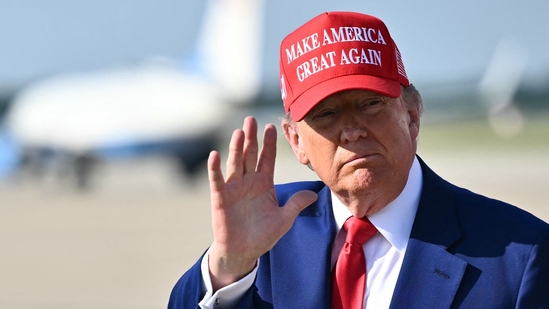President Donald Trump’s recent military strike on Iran, involving the use of high-powered bunker-busting bombs on nuclear sites, has drawn international attention and domestic political ripples that may shake the foundations of the MAGA movement he built.
While the strikes, hailed by some as a bold assertion of American strength, has reignited foreign policy debates in Washington, and have also exposed a growing rift within Trump’s own base.
For a movement that has consistently championed an “America First” foreign policy and is skeptical of foreign interventions, the decision to launch a major military strike in the Middle East has sparked a range of reactions.
MAGA Divided Over Trump’s Decision
A significant portion of Trump’s support has long come from voters who saw him as an anti-war candidate. Trump is seen as someone who would break with decades of U.S. interventionism. For many in the MAGA movement, the decision to launch a new military offensive in Iran, is viewed as a serious betrayal, one that cuts deeper than shifts in economic or trade policy.
During his 2024 campaign, Trump repeatedly vowed to end America’s involvement in foreign wars, reinforcing the “no more forever wars” ethos that has become central to the modern MAGA identity. Now, as the Trump administration grapples with internal disagreements over strikes against Iran, it risks undermining a core promise that helped galvanize his base.
Vice President J.D. Vance sought to downplay concerns, stating that the U.S. is “not at war with Iran, but with Iran’s nuclear program.” Meanwhile, Secretary of State Marco Rubio echoed that sentiment, emphasizing that the U.S. is “not looking for war with Iran,” framing the operation as a limited and targeted effort rather than the start of a broader conflict.
Political Risks in an Election Year
In recent years, the Republican Party has become increasingly divided on foreign policy, particularly between traditional hawks and the populist-nationalist wing that has come to define much of the MAGA base. While neoconservative voices have largely supported the show of force against Iran, many rank-and-file voters who backed Trump’s “America First” agenda may view the strike as a betrayal of his anti-interventionist promises.
Any internal division within MAGA could carry political costs in upcoming Mid-terms. Trump’s campaign has leaned heavily on the loyalty of his base, which remains a formidable force in Republican politics. But if the Iran strike is seen as a step too far by a significant portion of his followers, it could dampen turnout or fracture support just enough to complicate his path forward.
Also read: Why U.S. Strike on Iran “One of the Most Daring” Attacks in Modern History?
Even in the absence of direct military conflict, regional instability could drive up oil prices and create economic volatility, issues that hit home for many American voters. If the economy suffers as a result of the strike, Republicans may find themselves not only facing blame for the conflict but also for its broader economic fallout.
Democrats have seized on the moment to paint Trump as unpredictable. By highlighting the inconsistency between Trump’s campaign rhetoric and his actions, Democrats can target disillusioned voters and reenergize anti-war segments of their base, painting Trump as a danger to both national security and economic stability.
Uncertain Road Ahead
Whether the strike on Iran becomes a rallying cry or a wedge issue within MAGA remains to be seen. Trump’s political instincts have often defied conventional wisdom, and he may still manage to hold his coalition together through a mix of rhetoric, nationalism, and campaign recalibration. Yet one thing is clear: the strike has reopened questions about what “America First” truly means in 2025, and whether the movement that reshaped Republican politics can survive its internal contradictions.








